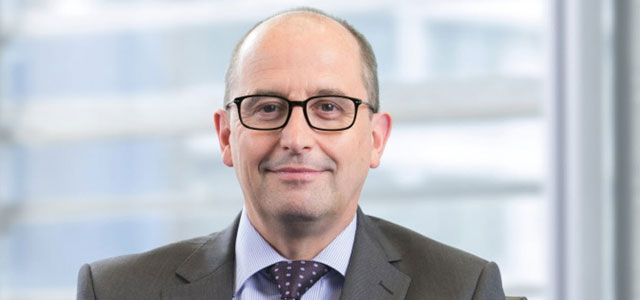"Data analytics are changing the fundamentals of business"

Professor Richard Clegg, one the keynote speakers at Airmic's ERM Forum in November, speaks to Jessica Titherington about his work at the cutting edge of technology, business and risk.
"What will be the most important emerging technology over the next decade? For me, that's an easy question," says Professor Richard Clegg, managing director of Lloyd's Register Foundation, a charity that funds and promotes safety advances in engineering-related fields.
One of the charity's remits is to provide venture capital to help accelerate emerging technology. So key to Prof. Clegg's role as head of the organisation is to stay at the cutting edge of where technological developments meet business developments. That is in part why he is able to talk with such clarity on a subject that confounds many.
"I often ask myself - because it's a useful intellectual exercise - if we could fund just one emerging technology, what would it be? And at the moment, that would unquestionably be data analytics."
This is an umbrella term, he explains, under which he includes artificial intelligence, automation and interconnectivity - all of which are "the arms and legs" of big data.
Asked how he would advise businesses trying to grapple with the impact these technologies will have on their organisations, he explains the first step is to recognise that these changes are fundamental and far-reaching.

Professor Richard Clegg - managing director, Lloyds Register Foundation
"This is not just about substitution - swapping one piece of technology with another newer version. The technological developments we are seeing now are completely restructuring the landscape, changing businesses, altering competition and all sorts of things we can't yet imagine."
He adds: "The world is completely changing and it requires an open mind and a degree of imagination to fully comprehend."
The Lloyds Register Foundation is a global charity that helps to protect life and property and support education, engineering-related research and public engagement.The Foundation is a young charity, set up in 2012, but it is the product of an organisation with a long tradition of public benefit, Lloyd's Register, which was created in 1760. Prior to heading the Foundation, Professor Richard Clegg had a scientific background in industry, government and academia, principally in the civil and defence nuclear sectors. Richard sits on a number UK government and industry advisory committees and boards. |
Emerging technology is just one of four main areas where the Lloyd's Register Foundation directs its efforts. The advancement of skills and education; funding excellent scientific research; and enhancing the public understand of risk are the other three.
Promoting the public understanding of risk is important, he believes, because perceptions of risk can be as important as the risk itself when it comes to creating a safer world.
"Intellectually speaking, if we were to fulfil our aim of making the world a safer place, in whose eyes is it safer?" he asks. "The answer you invariably come to is society. But what or who is society? And do they perceive the world as safer?"
Perceptions of risk is an interesting and complex subject, he says. By way of example, he notes that the public's perception of a threat is significantly altered by their level of familiarity with the particular subject matter.
For instance, people often underestimate the day-to-day risk of death by electrocution because electricity, plug sockets and electric appliances are normalised, everyday items. By contrast, people often overstate the risks of things such as terrorism - events which are unfamiliar and not regular occurrences.
"Often it's not a technology problem, but a perception problem. And that's an important part of what we do because the government - and other bodies - have to spend a lot of public money to alleviate public anxiety about certain issues, rather than spending the money on alleviating the actual risks."
Professor Richard Clegg will be discussing his work for the Lloyd's Register Foundation in more detail at the ERM Forum on 7 November. Places are free to Airmic members. View the full programme and to register here.
